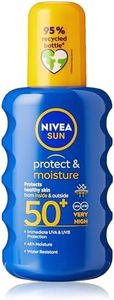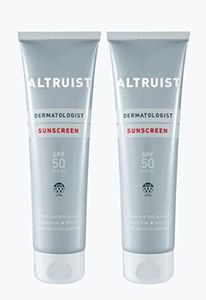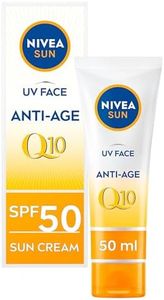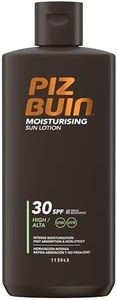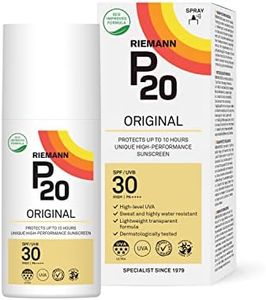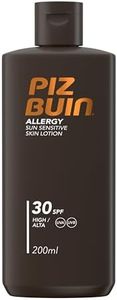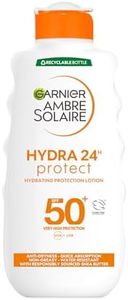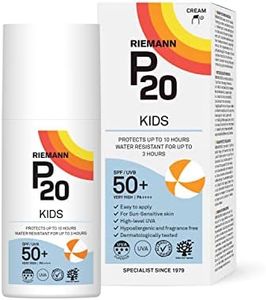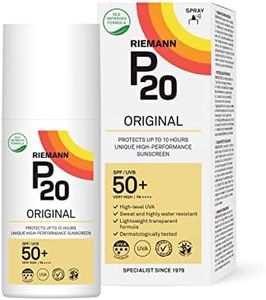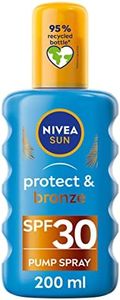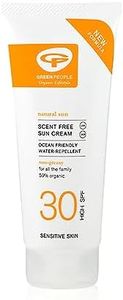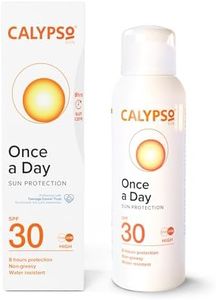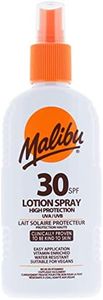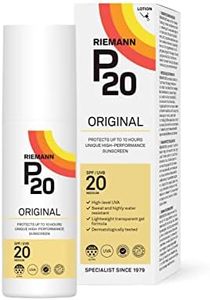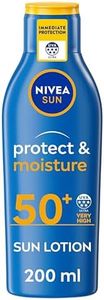We Use CookiesWe use cookies to enhance the security, performance,
functionality and for analytical and promotional activities. By continuing to browse this site you
are agreeing to our privacy policy
10 Best Sun Cream
From leading brands and best sellers available on the web.45,000 reviews analyzed
#1
Best Choice
#2
Value for Money
Shipping from Amazon's UK regional warehouses
#3
#4
#5
#6
#7
#8
#9
#10
More great picks just for you
Buying Guide for the Best Sun Cream
Choosing the right sun cream is essential for protecting your skin from harmful UV rays, preventing sunburn, and reducing the risk of skin cancer. The right sun cream will depend on your skin type, the level of sun exposure you expect, and any specific skin concerns you may have. It's important to understand the key specifications of sun creams to make an informed decision that best suits your needs.SPF (Sun Protection Factor)SPF measures how well a sun cream can protect your skin from UVB rays, which are the main cause of sunburn. The higher the SPF, the more protection it offers. SPF values are typically divided into low (15-29), medium (30-49), and high (50+). If you have fair skin or plan to be in intense sunlight, a higher SPF is recommended. For everyday use, a medium SPF might suffice, but always consider your skin's sensitivity and the duration of sun exposure.
Broad Spectrum ProtectionBroad spectrum protection means the sun cream protects against both UVA and UVB rays. UVA rays can prematurely age your skin, causing wrinkles and age spots, while UVB rays can burn your skin. Both types of rays can contribute to skin cancer. It's important to choose a sun cream labeled as 'broad spectrum' to ensure comprehensive protection. This is crucial for anyone spending time outdoors, regardless of skin type.
Water ResistanceWater resistance indicates how long the sun cream remains effective while you are sweating or swimming. Sun creams are usually labeled as water-resistant for either 40 or 80 minutes. If you plan to swim or engage in activities that cause sweating, opt for a water-resistant formula. Remember, no sun cream is completely waterproof, so reapplication is necessary after swimming or heavy sweating.
Skin Type CompatibilityDifferent sun creams are formulated for different skin types, such as oily, dry, sensitive, or acne-prone skin. For oily or acne-prone skin, look for non-comedogenic formulas that won't clog pores. For dry skin, moisturizing sun creams with hydrating ingredients are ideal. Sensitive skin types should opt for hypoallergenic and fragrance-free options to minimize irritation. Understanding your skin type will help you choose a sun cream that not only protects but also complements your skin's needs.
IngredientsThe ingredients in sun cream can affect its effectiveness and suitability for your skin. Mineral-based ingredients like zinc oxide and titanium dioxide are often recommended for sensitive skin as they sit on top of the skin and reflect UV rays. Chemical ingredients like avobenzone and octocrylene absorb UV rays and are often found in lighter, more cosmetically elegant formulas. Consider any allergies or sensitivities you have when choosing a sun cream, and opt for formulations that align with your skin's needs and your personal preferences.
